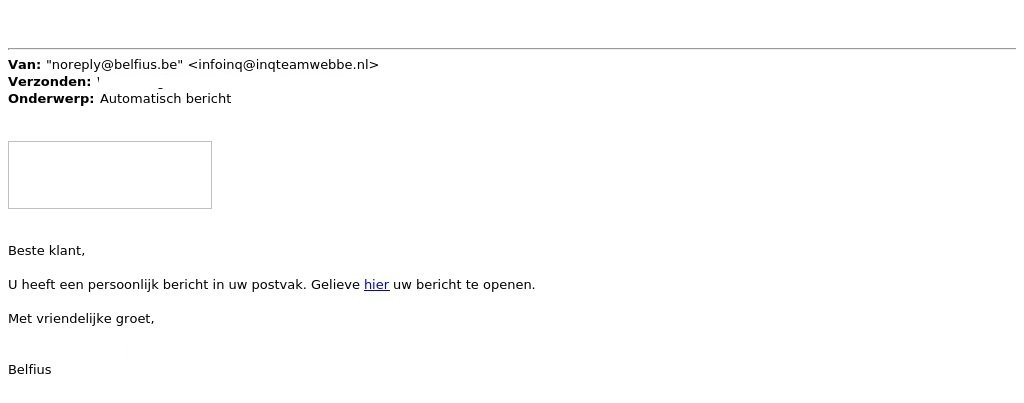We cannot say it often enough: be very careful with links you receive by e-mail, text message or other messaging systems. Never click on a link without knowing its origin. Sometimes these messages are in the form of prizes, competitions, so-called "official" emails inviting you to consult a document, etc. Whatever the form, one thing is certain, it is probably a scam.
Here are some examples.



What is phishing?
Phishing is a form of online fraud in which cybercriminals try to get hold of the bank details and PIN codes to their victims’ bank accounts. They do this using malicious e-mails, text messages, WhatsApp messages or social media messages containing a link to a fake website, a suspicious attachment or a request to download an app.
How does it work?
The phishing message may contain a link to a website. If you fill in any of your personal PIN codes or passwords on that site, you will be giving the cybercriminals free access to your bank account or another account.
Some phishing messages contain an attachment that you are supposed to open, or a request to download an app. If you do that, the criminal can install a virus on your device and cause even more damage, for example by using all your contact details, reading your passwords, stealing your data and so on.
Protect yourself and others from phishing
Everyone receives a suspicious message now and again. But together we can stay one step ahead of the fraudsters.
- Don’t click on any links or attachments in the message
- Never share your personal codes or passwords
- Forward the message to suspicious@safeonweb.be (a screenshot is sufficient with an SMS)
- Delete the message
